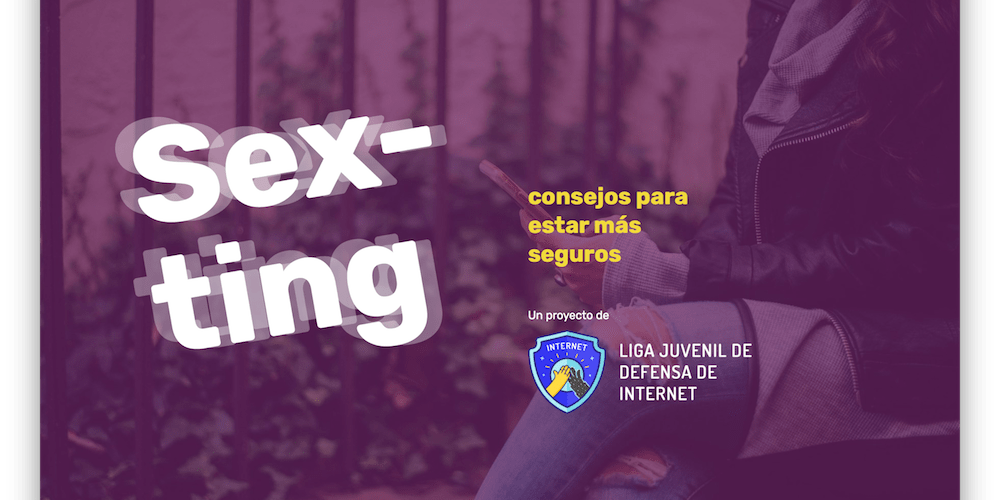Youth and privacy in the Americas: Hiperderecho, Perú
How do youth allies promote young people’s critical thinking on privacy, in informal learning contexts in the Americas? This blog post is part of a series showcasing the work of different organizations at the intersection of youth development, digital rights, and online safety.
Quick facts
Who: Miguel Morachimo from Hiperderecho
What: Legal advocacy, campaigning, workshops
Mission/vision: To promote local development through solidary social economic practices in different fields, including information and communication technologies
Where: Peru
Since: 2013
Years of operation (as of February 2018): 5
Works in the fields of: Right to privacy, digital security, digital rights
Post summary: Hiperderecho is a digital rights organization in Peru that has a youth league, and also did a university workshop tour to raise awareness about privacy among youth.
Highlight quote from the interview: “There is a difference between prescribing a life path and giving options. Advocacy is not about telling that you should use x or stop using y. It is more about saying, ‘if you use x, this is what is at stake’. We see many prominent people in this movement who have conflated both approaches.”
More resources: Hiperderecho website; Hiperderecho Youth League’s guide to safer sexting.
Even though Hiperderecho’s members are at most in their early thirties, they do not self-identify as a youth rights organization. For Miguel Morachimo, the 30-year-old founder and director of Hiperderecho, the organization is sustained on the idea that technology can be a tool of social transformation that can help any person to change their life, their work. And he recognizes that those at the frontier of said lifelong transformation are youth.
This is why, despite their focus on human rights in the digital ecosystem at large, they make sure to do special outreach to college students. “We think youth are the best positioned to take advantage of this. Most of our work is with college students or graduate professionals.” By work, he means the advocacy and workshops that Hiperderecho does on different topics related to privacy and digital security.
Hiperderecho intentionally visits the spaces where youth are already present. They started a university tour inspired by LibreBus: “We wanted to produce a 3-4 hour event and replicate it in the biggest possible number of universities. We called it ‘Privacy self-defense’, and two people carried it out: half of the content was legal, half of it was technical. We talked about karate-move-inspired ways to preserve privacy. How to ask questions to those collecting your data, use of plugins. We did it five times. Bruce Lee with a floppy disk.”
Miguel recognizes that they were not methodological about this tour; “we didn’t do tests afterward or anything. For us it was about workshopping, chatting with people, and not about converting all participants but raising awareness because we think privacy was a difficult topic to process. We discovered in other conversations and workshops that people are sensitive to some things but not others; they care about what apps allow you to screenshot ‘self-destroyed messages,’ but not about the information they collect and retain.”
How do they challenge these pervasive views through their workshops? Hiperderecho in Peru had to find ways to promote these conversations especially with youth studying technical careers, and they ended up relying on open questions. “We spoke a lot with engineering students, and it’s interesting to talk about ethics with them especially. Privacy by design, privacy by default, is not getting discussed there. I like the idea that privacy is not a binary, that there is no public-private. For example, the name of your partner or your birthday is not something you would mind telling to a friend, but you wouldn’t tell a stranger if they walked up to you on the street. We spoke about software decisions aligned with this ethics, like the Twitter button that allows you to delete all locations—that was designed by thinking of people who no longer want to share this kind of information.”
Moreover, Hiperderecho started a youth league for the defense of digital rights with college students. One of their projects, carried out by law school students, aims to create repositories where students from different schools can share learning resources. They also collaborated on a guide for safer sexting.

Also a proponent of engaging educational materials, Hiperderecho was not only preparing to release their annual report in comic format; they made a coloring book about the ten digital rights that every Peruvian should defend following the format of the book of activities for the summer given at the end of the school term, and that must be handed in, complete, at the start of the following term.
Miguel is a lawyer, and Hiperderecho is an organization of youth from different walks of life and professions. Their work is financed by technology companies and foundations that support outreach to IT users in Peru. They belong in an ecosystem of organizations that promote digital security – one sometimes criticized for placing the burden on victims of privacy violations, rather than on violators. When I asked Miguel how he feels about this, he said Hiperderecho’s work believes that “there is a difference between prescribing a life path and giving options. Advocacy is not about telling that you should use x or stop using y. It is more about saying, ‘if you use x, this is what is at stake.’ We see many prominent people in this movement who have conflated both approaches.”
Hiperderecho’s work exemplifies a key component of successful activism: institutional youth involvement. Giving youth the opportunity to work on campaigns helps Hiperderecho find formats and messaging that resonate best with those they want to reach.

Hiperderecho Youth League.
You can read more on Hiperderecho’s work at hiperderecho.org; don’t miss their Youth League’s guide to safer sexting.

